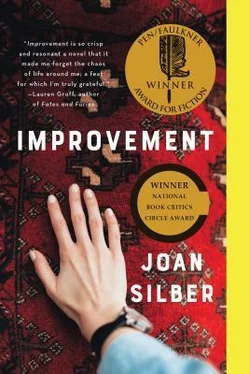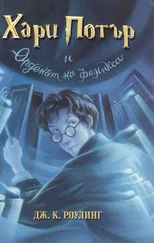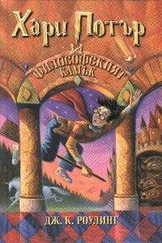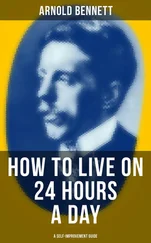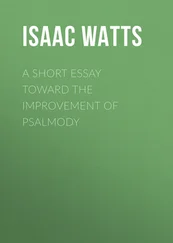“You know,” her mother said to Christa, “my daughter does very good work for a living. With art. Restoring order to the world.”
“Yes, it’s good,” Christa said.
The job was more tedious than it looked. She’d been hired to go over lists that had already been gone over, to see if she could fill gaps. Any small trace she found—an auction record, a link to a suspect seller—was added to the online catalogue of work acquired in certain years, in case anyone wanted to make a claim. No claimants had appeared during her time at the museum.
“At least they pay you,” her mother said. “I’m never going back to work if I don’t have to. I can starve, I don’t mind starving.”
“Yes, you do,” Christa said.
“I’m sick enough,” her mother said, “to do whatever I want.”
The day Monika took her home from the hospital, her mother had pinned her streaky hair into a twist and put on red lipstick. She wore a blouse and a trim skirt like a woman ready for a job interview she knew wouldn’t go well. In the car Monika had ordered for them, her mother kept saying, “Oh, well, at least I’m going home.”
On her lap Monika carried a cardboard bakery box. Her mother had complained she was going nuts from not smoking, and her friends had brought to the hospital great quantities of sweets to distract her. Jelly doughnuts, big chewy gingerbread cookies, poppy seed cake. Monika planned to set out a good tea with the leftovers when they got home.
“Oh,” her mother said, when she walked through her own door, “it looks different.”
“I cleaned up.”
“I don’t mean that.” Her mother was settling herself onto the couch. “I have to get used to it again. I don’t work anymore, I’m an invalid.”
“A woman of leisure.”
“Try not to condescend to me,” her mother said.
Monika ignored her and set out the cakes. “I don’t want you eating any of this,” her mother said. “We have to save it for when Bruno comes.”
In the hospital she’d introduced Bruno to all the nurses as Monika’s father. As if they’d been a real couple; as if they’d had a far greater love than they ever had.
“You’re going home soon anyway,” her mother said. “To be in New York with your husband. Or didn’t you leave him last year? I thought you left him.”
“Stop it.”
Her mother gave a dry laugh. Would it help her now if she had a man with her? Men hadn’t been all that much help in her younger days, not as Monika remembered it. She wasn’t about to find any new ones now, though you never knew with her.
“Look at you,” her mother said. “Healthy and married.”
“I never get sick. In New York everybody gets colds in winter and I don’t even get a cold.”
“I was always healthy too. I never took care of myself when I was young. I went and did what I wanted and I was lucky.”
Monika had never thought of her mother as lucky.
“Never sick a day in my life. Nothing wrong with me till now.”
“Just don’t smoke.”
“It’s almost over,” her mother said, slowly, with a rise in her voice. “What is it?”
She meant life. Did she expect Monika to answer this? Her mother was giving her a very long, direct gaze. And the question was not even a question but a complaint. So much trouble, and for what?
“You have more time, I think,” Monika said.
Which was not an answer and made her mother very angry. “You don’t know anything,” she said. “You were always a bullshitter. You were. You always snuck off and lied to me.”
“Of course,” Monika said.
Her mother had started to drink a cup of tea and was nibbling on the piece of Obstkuchen she’d said she wasn’t hungry for. She was wan and dull-skinned but she did look better now, didn’t she?
“You weren’t that bad a mother,” Monika said.
Not too hard to say, but it startled her to see from her mother’s face that she believed her.
Was that what she wanted, those words? You’d think she could have done a better job of it then. But people often wanted payment for what they only wished they’d done. Her mother did look happy now, soft and tender and gratified.
When Julian called, he said, “Don’t get too settled in there. I mean in Berlin.”
She imagined Julian in the room with her mother. Maybe it could have been all right now; he and her mother could have worked it out. Maybe.
“I wish you liked it better here,” Monika said.
“Well, I don’t.”
“Bruno’s disappeared again. Not that I blame him.”
Her mother did blame him, of course. But would even a love much more substantial than Bruno’s have been of any use? Monika didn’t think so. People thought love was everything, but it could do so much and no more.
Could it save her sixty-one-year-old mother from heart disease? Could it stop wars, block floods, slow down hurricanes? Maybe save was the wrong way to look at it. Surely too much was asked of love.
Later that day Bruno sent her an email— working hard for husband, calling in favors for Art Fair, one more person to talk to . Monika decided it would be highly unwise to mention anything to Julian. She’d hate it if she had to un-tell him. All the same she was hit hard with disappointment when Bruno finally phoned her with the news that all his efforts (if he’d made any) had come to naught.
“It’s too late, you know,” Bruno said. “You should’ve started before.”
Why do I let him con me? she thought. And how many people have asked that question?
“Your mother,” he told her, just as Monika was sitting in the room with said mother, “is very proud to have a daughter who’ll always take care of her. You should hear her go on.”
“My mother just told me,” Monika said, “that her favorite city in the world is Istanbul. Even though you ran off with an Italian while she was there. She says she got back at you later. And that you all made tons of money from whatever you bought in Turkey.” Was it drugs, had her mother dealt drugs?
“We never made lots of money. No matter what she tells you. Your mother has never been rich,” Bruno said. “Don’t forget that.”
“How could I?” Monika said.
And she did go to the bank twice before she left and took out enough to leave her mother an envelope with seventeen hundred euros in it. Not a lifesaving amount but it would help fill in the gaps and delays, since her mother had never been good at budgeting. “Just so you have cash on hand,” Monika said.
“Oh!” her mother said. “This isn’t because you’re never coming back?”
Monika blushed from the wildness of this thought, which she hadn’t even had. “No, no, I’ll be back.”
“I didn’t think,” her mother said, hugging her, “you would turn out so well!”
“Surprise, surprise.”
“My own Mausi . You have enough money for you? You didn’t give me too much? I know your husband isn’t earning.”
“No problem. Really,” Monika said.
“Don’t tell Bruno. He always borrows.”
We will miss our good generous girl , Bruno wrote in his final message to her (he’d been told), and hope you won’t forget us. Say hello to your talented husband and guess what? The gallery owner who liked his work so much is very interested to see more. Contact information followed—she only hoped it wasn’t bogus. Julian would be happy about this, and he’d think it was her doing. She was coming home with a gift. She would have to tell him all the work she’d done to get it, how doggedly she had talked him up, how much the man admired the photos.
The night before she left, she and her mother got drunk on a bottle of herbal schnapps, which couldn’t have been good for her mother’s heart and made both of them giddy. It wasn’t bearable to imagine that she might not see her mother again, this woman wearing red lipstick and laughing about Angela Merkel’s haircuts. They were parting on good terms, weren’t they?
Читать дальше
